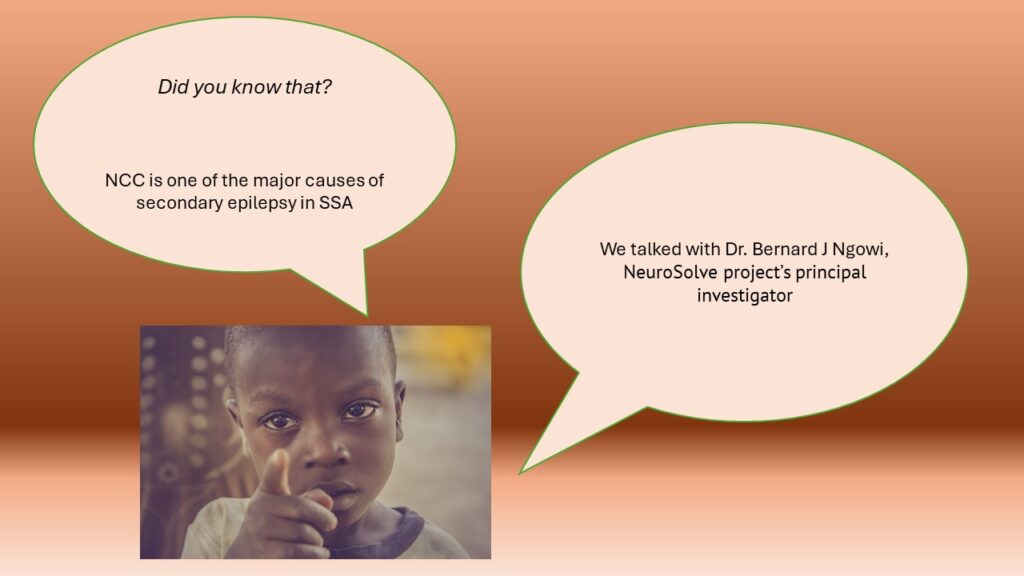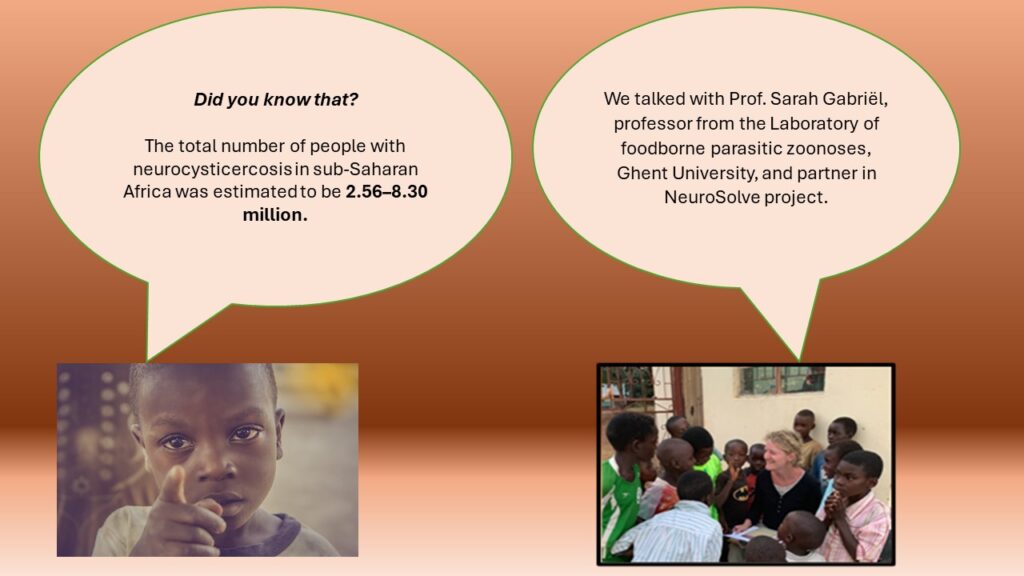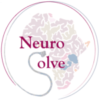The “NeuroSolvePills” series includes short pills of science from the NeuroSolve scientists about the topics, including, but not limited to, Neurocysticercosis, Neglected Tropical Diseases, epilepsy and more.
Part 1 of #NeuroSolvePills series!

So far, most of the knowledge about Neurocysticercosis (NCC) comes from Latin America and the Indian subcontinent. Unfortunately, in sub-Saharan Africa the condition was neglected for a long time, mainly owing to the lack of appropriate diagnostic tools.
This is the reason why Dr. Bernard Ngowi has dedicated much of his studies to this pathology.
Dr Bernard Ngowi is a lecturer and a researcher at University of Dar es Salaam, Mbeya College of health and Allied Sciences (UDSM MCHAS) and principal investigator in NeuroSolve. He has participated in a number of Cysticercosis research project such as DFG funded study on Assessment of prevalence of NCC in people with seizures within areas (urban and rural) endemic for porcine cysticercosis in selected African countries and treatment of identified cases, EDCTP funded project on Evaluation of an antibody detecting point-of-care test for the diagnosis of Taenia solium taeniosis and (neuro)cysticercosis in district hospital settings of highly endemic, resource-poor areas in Tanzania, BMBF funded project on the assessment of the patho mechanism involved in the development of active NCC among HIV positive and negative individuals.
For more information about Dr. Bernard Ngowi and UDSM involvement in NeuroSolve, click here: https://neurosolve.net/index.php/usdm/
Part 2 of #NeuroSolvePills series!

The total number of people with neurocysticercosis in sub-Saharan Africa was estimated to be 2.56–8.30 million, according to the available data on the prevalence of epilepsy, and the expected contribution of NCC to epilepsy. However, these numbers may be underestimated because of poor access of the highest-at-risk groups to diagnostic tests.
We talked about that with Prof S. Gabriel. She has been conducting research on the pork tapeworm (Taenia solium), the cause of neurocysticercosis, for more than 24 years. She has conducted large scale studies in different sub-Saharan African countries on control and prevention, diagnostics as well as well as epidemiological and modelling studies. She studies this disease from a holistic, One Health perspective, considering the human and animal host as well as the environment. And the latter is really important if we want to sustainably control this parasite and reduce the human and animal burden of this disease. We need to implement control interventions in the human and pig host, meanwhile not forgetting improvements in water and sanitation, and general food hygiene, keeping the environment clean. Another aspect that needs immediate attention is rapid and correct identification and management of people with neurocysticercosis. NeuroSolve aims to tackle these challenges.
For more information about Prof Sarah Gabriel and Ugent involvement in NeuroSolve, click here: Ugent – NeuroSolve
Part 3 of #NeuroSolvePills series!

We talked with Prof. Kabemba Evans Mwape, NeuroSolve project Principal Investigator for Zambia and Senior Lecturer and Researcher in the Department of Clinical Studies of the School of Veterinary Medicine of the University of Zambia.
He has almost 20 years of experience in T. solium research, focusing on field work in rural settings including community engagement, diagnostic tools, epidemiology and control of T. solium.
Talking with him we got several important suggestions on how to prevent T. solium infection, as for example:
1) Use toilets or latrines to avoid infecting the environment, pigs and other people.
2) Wash your hands with soap and water after using the toilet and before eating anything.
3) Do not eat pork meat that is clearly infected with cysts.
4) Eat pork meat that has been inspected.
5) Cook pork thoroughly (no pink should be seen) to kill the parasite.
6) Keep pigs in pens to avoid them freely roaming and getting infected.
7) Vaccinate and treat pigs to prevent infection.
8)Seek medical attention whenever you suspect worm infection.
For more information about Prof. Kabemba Evans Mwape and University of Zambia involvement in NeuroSolve, click here: UNZA – NeuroSolve
